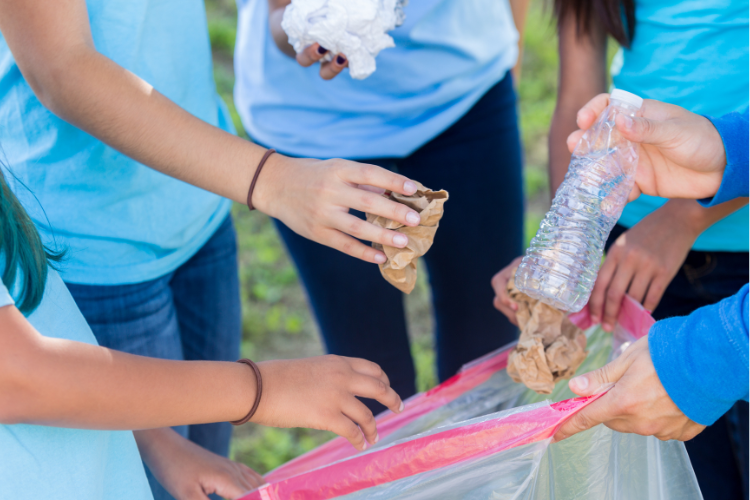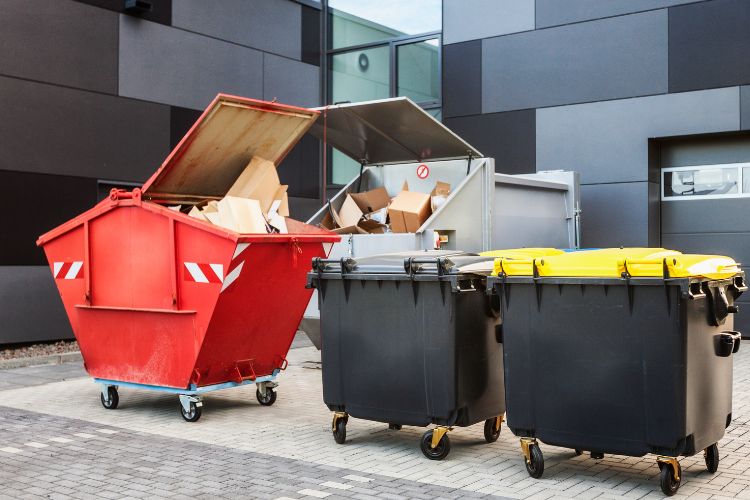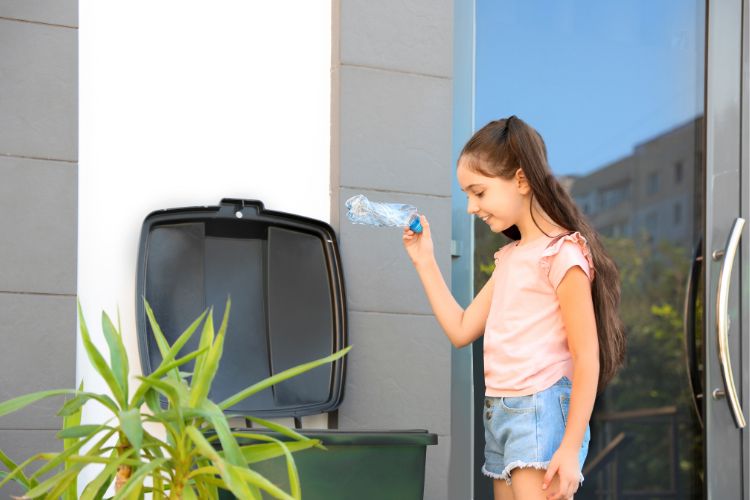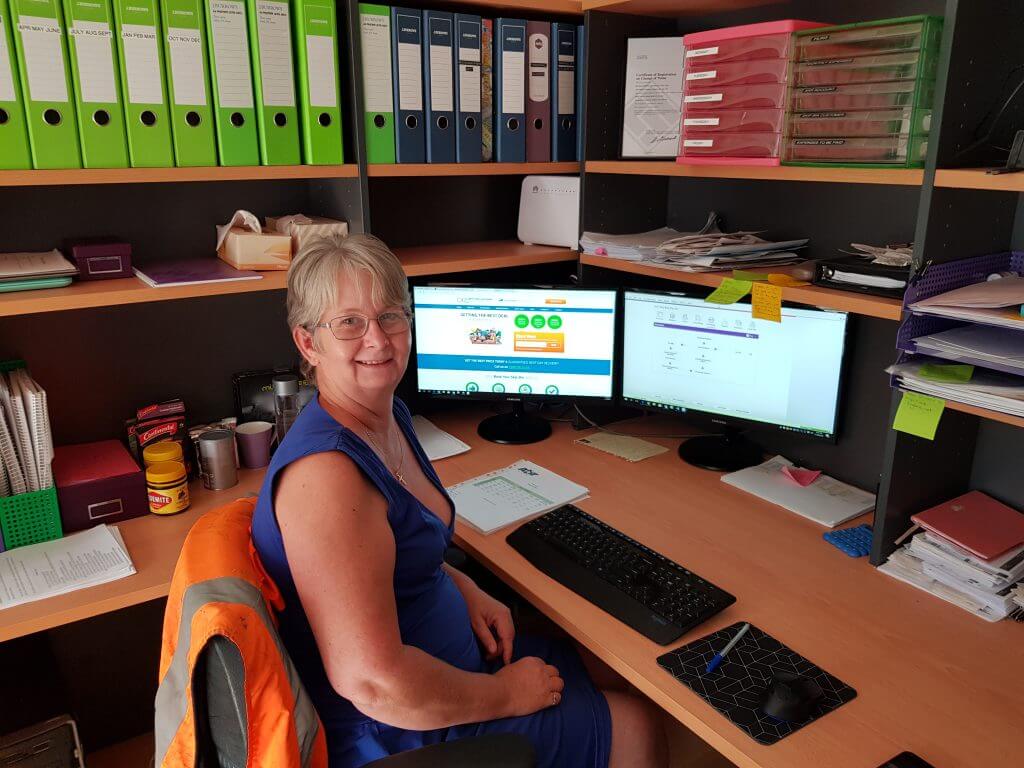Community clean-up initiatives and projects play an important role for people from all walks of life.
Clean surroundings, free of litter and rubbish, have a range of benefits, including improving the overall self-image of your neighbourhood, reducing health risks, increasing safety standards, helping the environment, and generally making the area a nicer place to be.
Skip bins are a lifesaver when it comes to waste removal, providing a simple and efficient means of rubbish collection and disposal.
Because skip bins are easily transported, they’re an ideal solution for community clean-ups, as they can be brought to the site for the day and taken away later.
Let’s look at the importance of clean-ups and waste management in the community and how skip bins can be an essential part of this process.
Communities Driving Change

Pollution and its effects on the environment have never been more important. Our waste disposal habits play a major role in not only our environmental impact but also the overall appearance of our neighbourhoods, schools, parks, waterways, and land.
Even with the best intentions, sometimes rubbish can gather in the area. This can happen due to several reasons, including poor waste management practices, wildlife getting into bins, or severe weather events spreading rubbish and debris everywhere. This is where a community-driven clean-up effort can really make a difference.
A clean-up is all about community engagement and collaboration. Everyone can get involved, from residents and volunteers to local businesses and the authorities. Along with improving your local area, it’ll help build camaraderie and community spirit.
Organised clean-ups can range in scope and size, from students and teachers cleaning up their school to entire neighbourhoods lending a hand.
Australia’s biggest and most well-known example, Clean Up Australia Day, began when Ian Kiernan was shocked by how much rubbish was lying about and organised a community event to clean the place up. It is now a national event participated in by individuals and companies across the country.
Understanding Skip Bins and Their Uses

There are numerous types of skip bins and the right choice for you will depend on what you’re throwing away. When hiring a bin from us, you’ll be asked what type of rubbish and materials you’re planning to dispose of, and this will help us choose the right bin for your purposes. Here is a quick rundown of what’s available:
General waste: Household waste, furniture, light green waste, light construction waste.
Green waste: Light green waste, small branches, woodchips and bark, and untreated timber.
Concrete/brick: Concrete, brick, roof tiles, floor tiles and other construction debris.
Soil/dirt: Naturally occurring dirt, soil, or clay.
Mixed waste: Construction, domestic and commercial waste, household waste, treated timber, and furniture.
Unsure which skip bin is right for you? Our team can help you choose the best skip bin for your project. For a more detailed look, find out what you can and cannot put in each bin.
Local Initiatives and Skip Bins
Hiring skip bins for local initiatives, whether it’s a clean-up project or for waste management at an event, is an effective and efficient means of waste disposal. Governments and councils often organise and assist with community clean-ups and hire skip bins for these purposes.
It’s worth talking to your local council or environmental organisations to see if they can help with resources for your clean-up project. Skip bins provide an easy means of dealing with rubbish and contributing to sustainability in the community.
Encouraging Participation and Raising Awareness

Choose a clean-up site: Having a specific site, whether it’s a park, beach, school, or street, will help give a goal to your entire project. Look for areas that could really benefit from some maintenance. Remember, there may be council regulations, and/or you may need a permit, so check with your local council before proceeding.
Assemble a team: Talk to family, friends, and neighbours about participating in your clean-up event. Encourage them to talk to their associates about helping out as well. When talking to people, emphasise why you’re doing the clean-up and how it will benefit everyone.
Try to work with local community groups: With a little research, you may find there are local conservation, recycling, and environmental groups in your area that are keen to help with your project. Not only will this help promote your cause, but these groups are likely to have experience and skills that will be invaluable to your initiative.
Share information about the event: Get the word out there by advertising on social media, on the radio, or posting on local bulletin boards.
Challenges and Solutions in Community Clean-Ups
Like any group project, a community clean-up can have its challenging aspects. Some of the most common issues you face include:
- Recruiting volunteers: Most people are all for helping the environment, but people are also busy. Try to find a time when most people will be free and emphasise the benefits when recruiting.
- Keep everyone energised: A clean-up can take all day or even a few days, so it’s important to have resources and refreshments on hand to keep everyone safe and motivated.
- Removing rubbish: Picking up rubbish is only half the process; you’ve got to have somewhere to put it all. A skip bin provides a large container for all your rubbish. Once you’re ready for it to be removed, one of our team will take the skip away for you.
Best Practices for Skip Bin Usage

Hire the right bins for your needs: Recycling items when possible is great for the environment, and a clean-up is a great opportunity to teach people about this process. Be sure to hire containers, especially for recycling.
Load heavy items first: You may be surprised how large some items, such as abandoned furniture and old machinery, are. If possible, load these items into the skip first to better distribute the weight for transportation.
Don’t overfill the skip: Skip bins can handle a lot of weight, but it is possible to overfill them or exceed their maximum carry weight. Don’t fill above the skip’s rim, and don’t exceed the maximum weight capacity.
Break up bulkier items: Something as simple as cutting up a cardboard box can save valuable space in your skip bin.
Investigate any recycling initiatives: An important responsibility that comes with rubbish removal is handling recyclables. There are many recycling options out there, including Containers for Change and local council recycling programs.
Best Price Skip Bins are here to help you clean up!

A community clean-up initiative is a great way to improve your local area, encourage recycling, and keep our beautiful landscapes a little cleaner. Skip bins are an invaluable resource for communities planning any major clean-up for a wide range of waste types. The commitment shown by community involvement is a great way to show pride in your surrounding parks, schools and neighbourhoods. It’s also a great way to educate the younger generations (and maybe a few of the older ones) about waste segregation, recycling, and the negative impact of littering.
Do you need to rent a skip bin for your next clean-up event? Talk to the friendly, expert team at Best Price Skip Bins. We’ll help you find the right skip bin for your needs. Get in touch today!
